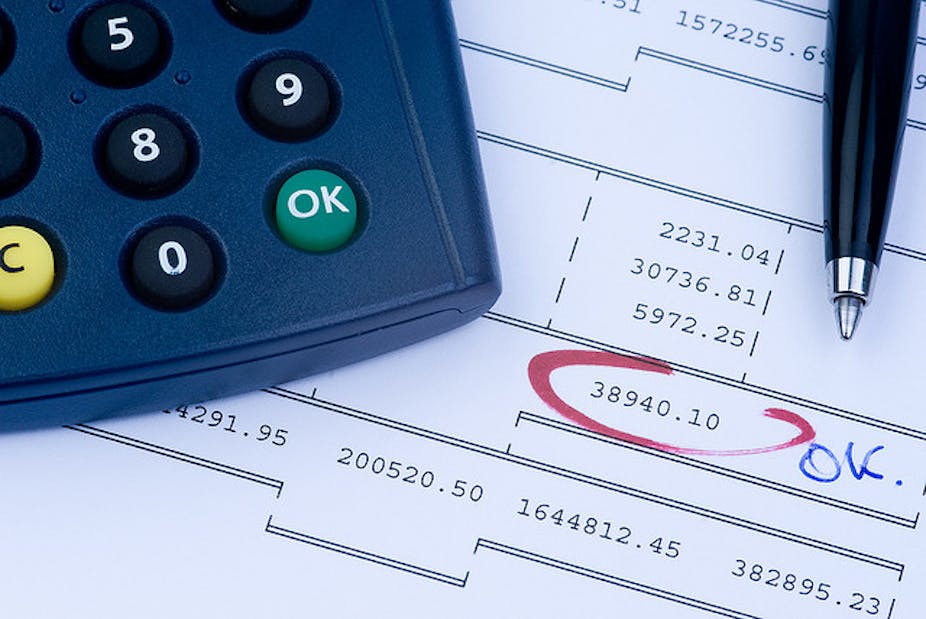Economic arguments have come to dominate the Australian political debate about climate change. When it comes to climate policy, both the government and the opposition talk far more about taxes, trading schemes and jobs than they do about climate science.
The most prominent government advisor on climate policy, Professor Ross Garnaut, is an economist, not a climate scientist. Meanwhile, Australia’s Chief Scientist Professor Penny Sackett resigned in February, frustrated with lack of government interest in her scientific advice, particularly on climate change.
Some seem to feel that the discipline of economics is having too much influence on the climate change debate, or even that it is part of the problem rather than part of the solution. Should we, perhaps, just get all of the economists out of the way and get on with reducing emissions?
Of course that’s not an option in reality, but I’d like to make the case that even if it were possible, it wouldn’t be a good idea.
Economics is one of many disciplines with potentially useful things to say about climate policy. To make good decisions in this area, we need information of many sorts, from various physical sciences, biological sciences, and social sciences. Within this complex mix of information, what does economics provide?
For one thing, it provides a framework for making complex decisions. Economic models of climate change don’t just include dollars, but a lot of details about the climatic system as well.
Economics aims to reduce the risk of us pursuing wasteful or ineffective actions by weighing up the benefits and costs of different responses.
We don’t just look at financial outcomes, but also environmental impacts. We don’t just look at arbitrary strategies, but aim to identify the ‘best’ strategy from the countless possibilities.
Whatever target policy makers finally settle on, economics helps us identify the cheapest way to get there. Economic analysis allows us to address climate change just as effectively as some politically popular strategies, but at a fraction of the cost.
For example, economic analysis has shown that technology subsidies, such as those for solar panels, insulation or biofuels, are often vastly more expensive to the community compared with relying on a carbon tax or emissions trading scheme.
Lowering the cost of reaching a target increases the political and social acceptability of pursuing it, increasing the chances that action will actually be taken.
On a similar theme, economics contributes to the specific design of policy programs, using insights into the behaviour of people and businesses to make the programs as effective, and cost-effective, as possible.
Economics links human behaviour to environmental outcomes, insights that should be right at the heart of thinking about climate policy.
Economists focus on risk and uncertainty, building them into their analyses, and trying to understand how they influence personal and business behaviour.
Professor Warwick McKibbin, who has probably done more work on climate change than any other Australian economist, has said that “uncertainty is the single most important attribute of climate change as a policy problem”. Clearly, economists’ strengths in this area are key to sound policy development.
Economics contributes essential information to sound ethical decisions about climate change. For example, it can identify winners and losers from any particular policy option, and quantify the extent of wins and losses.
In doing this, it captures both current sacrifices and distant future benefits and weighing them up. Comparing financial and environmental outcomes over very long time spans is extremely difficult and does require ethical judgements, not just calculations.
Economists recognise the difficulty, and are grappling with it. This is surely preferable to ignoring or sidestepping the issue, or considering it abstractly without considering how the numbers stack up.
The numbers do matter, even when it comes to ethics. For example, economists have generally predicted that people in 100 years’ time will be materially much better off, on average, than people are today, even after allowing for the impacts of climate change.
This raises challenging ethical questions about policy strategies that would take wealth away from poor people in the present in order to benefit richer people in the future.
Nobody claims that economic models are perfect. The systems we model are far too complex and uncertain for that. However, we do aim to make use of the best available knowledge.
And economics is certainly not the only discipline with imperfect models. Indeed, debates about climate models are probably more prominent in the physical sciences.
Economics can help us take a balanced approach to complex issues like climate change. It clarifies what’s at stake on both sides, reducing the risk that decisions will be based on ideological positions or on the vested interests of particular groups. In this way, it strengthens the democratic process.
Overall, economics is making a number of crucial contributions to the development of sound policy for climate change.
Taking economics out of the debate would make it much more difficult for policy makers to weigh up the trade-offs and conflicts. It would deprive decision makers of information about the links between climate policies, human behaviour and climate outcomes, and would increase the cost of responding to climate change.
That doesn’t sound like a good idea to me.

